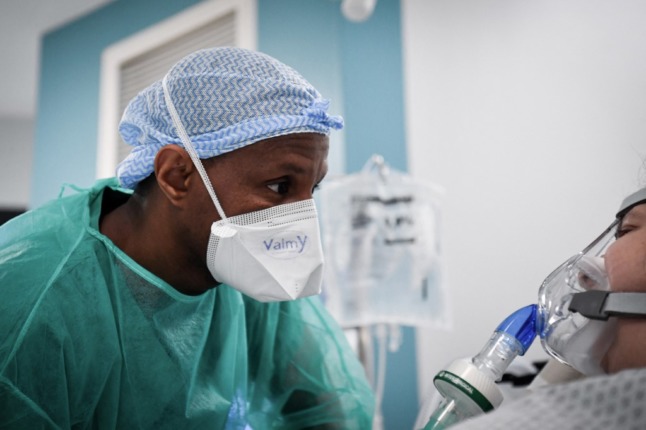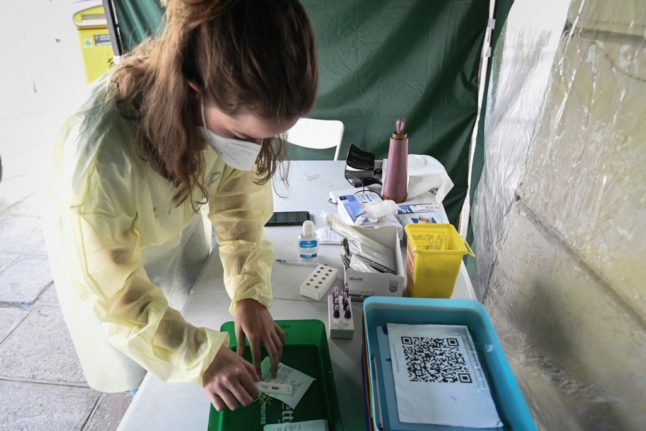France has the tenth highest level of fully Covid vaccinated rates in the world, with only Italy and Portugal surpassing it within the EU, according to Our World in Data.
But within France, the level of Covid vaccine coverage differs significantly by region.
The most vaccinated regions are in the west of the country with Brittany, where 81.6 percent of the population is fully vaccinated – counted by French authorities as someone who has either received two doses of Pfizer, Moderna or AstraZeneca, or a single dose of Janssen. People who previously had Covid are counted as vaccinated with a single dose. Booster shots are not included in this data.
Within Metropolitan France (i.e French territory in Europe), Corsica has the lowest rate – only 64.7 percent of the population is fully vaccinated, with 66.3 percent having received at least one dose.
Following Brittany, Normandy (79.6 percent) the Pays de Loire (79.4 percent) have the highest fully vaccinated populations.
Besides Corsica, the least fully vaccinated regions in Metropolitan France are Provence-Alpes-Côte d'Azur (72 percent) and the greater Paris Île-de-France region (72.9 percent).
All of these regions however compare favourably to most of France's overseas territories in the Caribbean and the Indian Ocean.
States of medical emergency have been declared in Martinique and La Réunion.
In Martinique, demand for places in intensive care units is running to close to double capacity. Only 35 percent of the population had received a full course of vaccination by December 27th. It has seen large-scale demonstrations in recent weeks against public health measures imposed by the government in Paris.
On the neighbouring island of Guadeloupe (where less than half of the population were vaccinated before Christmas), protesters stormed the local legislature on December 24th in anger sparked by Covid rules.
In La Réunion, situated in the Indian Ocean, a little over 61 percent of the eligible population received a full course of vaccination. Intensive care units are overflowing to 120 percent of their capacity.
Vaccination was opened up for children aged 5-11 last week - although this age group are not subject to the health pass.
The level of vaccination among children aged 0-11 is understandably lowest - more than 99 percent have not received a single dose.
The next least vaccinated age group are 12-17 year olds, of whom 18.9 percent are completely unvaccinated. They are followed by the 30-49 year old age group where 9.85 percent are unvaccinated.
In total, 8.5 percent of the French population aged over 12-years-old, more than five million people, are still to receive a vaccine according to covidtracker.fr
As a proportion of the total population, including those who are not eligible for vaccination, close to 80 percent of people in France have received at least one shot.
The most vaccinated age group are the 65-74 year-olds, 70 percent of whom have received a booster shot - a requirement for them to hold a valid health pass.
More than 94 percent of this age group have had at least two doses of vaccine - which is just as well because elderly people are among the most vulnerable when it comes to serious forms of Covid-19.
However, among the over 80s, the proportion of those with least two vaccines drops to 86 percent. The government is trying to expand outreach to this age group putting in place a special helpline (0 800 730 957) that can be used to arrange vaccination via a home visit or to provide transport to a vaccination site.
The line is open everyday from 6am to 10pm. Friends or family of people over 80 can call this number to arrange vaccination on their behalf.



 Please whitelist us to continue reading.
Please whitelist us to continue reading.
Member comments